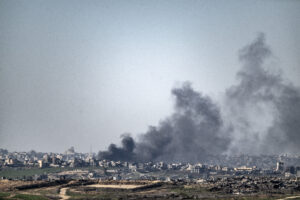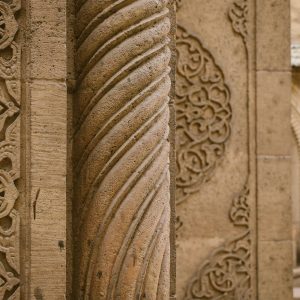Muslim groups express concern about FBI snooping on Muslims
ISTANBUL (AA) – The Council on American-Islamic Relations (CAIR) has expressed shock at the listing of Muslims in secret surveillance by the FBI.
A recent report revealed that a number of Muslims have been under surveillance since the terrorist attacks of September 11, 2001.
The FBI has monitored Muslims through electronic tracking and placed spies in Islamic communities.
Speaking to Türkiye’s Anadolu news agency, Gadeir Abbas, a senior lawyer at CAIR, said there is no legal basis for profiling Muslims.
“We’ve known for many years that Muslims are being watched,” Abbas said, “but seeing this list firsthand is truly shocking.”
“The US has been continuously spying on the Muslim community through electronic tracking and individuals placed in Islamic communities,” according to Abbas.
He said Muslims have been considered a threat under Presidents George W. Bush, Barack Obama, Donald Trump and Joe Biden.
People on the watch list face a number of problems, including travel restrictions, immigration problems, meetings with the FBI and restricted access to government buildings.
Abbas said Muslims are monitored at 2,500 mosques in the U.S.
He noted that “Muslims in the U.S. lived peacefully until 9/11, but after that, they were continuously viewed as threats and subjected to surveillance, which continued during the presidencies of George W. Bush, Barack Obama, Donald Trump, and Joe Biden, as security and intelligence agencies maintained secret lists.
“They knew Muslims were being profiled, but they couldn’t hold the government legally accountable until the report came out.”
Abbas pointed out in the report titled “Twenty Years Is Too Much, Call to Stop the FBI’s Watch List” prepared by CAIR that only the names “Muhammad” and “Ali” were mentioned more than 350,000 times in the FBI database with different pronunciations.
The FBI’s filing practices have an impact on Muslims’ daily lives because the reports are shared with over 60 countries, private companies, hospitals, and universities, resulting in restrictions for Muslims considered “potential terrorists” in various contexts.
According to Abbas, “the method used against Muslims is no different from a ‘witch hunt,’ and there is no guarantee that this will not be done to others in the future.”
Blaming the government’s lack of control, he said that it is the reason behind the access to this confidential list containing millions of Muslim names.
People on the watch list face a range of challenges, including travel restrictions, immigration issues, encounters with the FBI, instances of police violence, difficulties obtaining permits and licenses, professional consequences, and limited access to government buildings.










